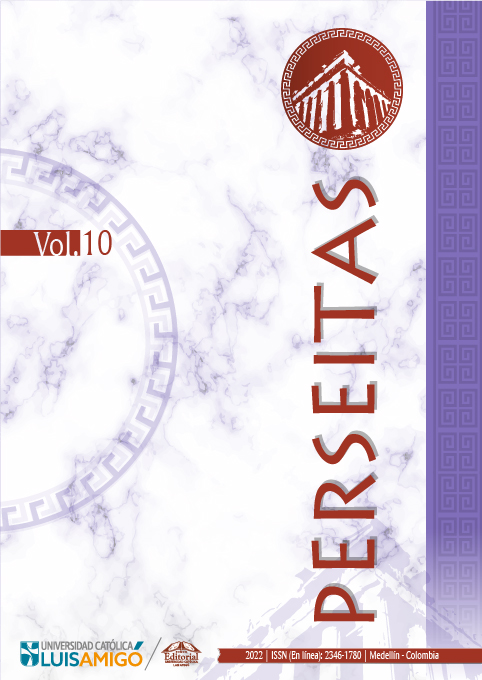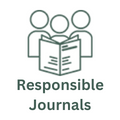Environmental otherness: ontological contributions to the foundations of environmental education
DOI:
https://doi.org/10.21501/23461780.4404Keywords:
Environmental education, Environmental otherness, Environmental crisis, Environmental ontology, Environmental epistemology, Environmental ethicsAbstract
The main purpose of this hermeneutic philosophical essay is to present the possibilities and contributions of environmental otherness to the field of the foundations of environmental education. To this end, at first, the work starts from the definition of otherness taking as a reference the approaches of Edmund Husserl, Emmanuel Lévinas, Maurice Merleau-Ponty and Paul Ricoeur. In a second moment, it shows how different environmental othernesses can be understood and develops them from the concepts of natures, intersubjectivity, diversity, language, spirituality, ancestrality, inequality and exclusion and complete environment. In addition to defining the concept of environmental otherness, the study considers that this concept creates comprehensive, dialogical, existential, political, denunciation and belonging possibilities for the
foundations of environmental education that are expanded and recognized in these many environmental others.
Downloads
References
Adorno, T. & Horkheimer, M. (1985). Dialética do esclarecimento: fragmentos filosóficos. Jorge Zahar.
Adorno, T. (1995). Sobre Sujeito e Objeto, Palavras e Sinais: modelos críticos. Vozes.
Agudelo, J., Rojas, F., & Ocampo, E. (2019). Sobre el reconocimiento y la otredad en la escuela: una lectura desde Lévinas y Mélich. Perseitas, 8, 1–20. https://doi.org/10.21501/23461780.3502
Capra, F. (2012). A Teia da Vida: Uma nova compreensão científica dos sistemas vivos. Pensamentos.
Capra, F. (2014). About Fritjof Capra. Fritjof Capra. https://www.fritjofcapra.net/about/
Carvalho, I. (2014). A perspectiva das pedras: considerações sobre os novos materialismos e as epistemologias ecológicas. Pesquisa em Educação Ambiental, 9(1), 69-79. https://doi.org/10.18675/2177-580X.vol9.n1.p69-79
Comissão Econômica para a América Latina e o Caribe (CEPAL). (2021). Panorama Social da América Latina. Resumo executivo. https://repositorio.cepal.org/handle/11362/47808
Freire, P. (2001). Pedagogia dos sonhos possíveis. Editora da UNESP. Freitas, C., & Benetti, M. (2017). Alterity, Otherness and Journalism: From Phenomenology to Narration of Modes of Existence. Brazilian Journalism Research, 13(2), 10–27. https://doi.org/10.25200/BJR.v13n2.2017.989
Gadamer, H-.G. (2002). Verdade e Método: traços fundamentais de uma hermenêutica filosófica. Vozes.
Habermas, J. (2001a). Teoría de la acción comunicativa: Racionalidad de la acción y racionalización social. Taurus.
Habermas, J. (2001b). Teoría de la acción comunicativa: Crítica de la razón funcionalista. Taurus.
Habermas, J. (2002). Pensamento pós-metafísico. Tempo Brasileiro.
Husserl, E. (2001). Meditações cartesianas. Madras Editora.
Leff, E. (2010). Epistemologia ambiental. Cortez.
Leff, E. (2012). Aventuras da epistemologia ambiental: da articulação das ciências ao diálogo de saberes. Cortez.
Lévinas, E. (1980). Totalidade e Infinito. Edições.
Löwy, M. (2019). Ecossocialismo, democracia e nova sociedade. http://www.ihu.unisinos.br/78-noticias/591623-ecossocialismo-democracia-e--nova-sociedade
Merleau-Ponty, M. (2011). Fenomenologia da percepção. Martins Fontes.
Neckel, K. (2021). Situações de Outridade: a participação do Outro na formação dos povos Ingleses. https://lume.ufrgs.br/bitstream/handle/10183/223958/001128204.pdf?sequence=1&isAllowed=y
Papa Francisco. (2015). Encíclica Laudato Si´- Sobre o cuidado da casa comum. Paulinas.
Pereira, T. (2017). A vida ensina: o “saber de experiência feito” em Paulo Freire. Revista Eletrônica Do Mestrado Em Educação Ambiental, 112–125. https://doi.org/10.14295/remea.v0i0.6896
Pereira, V. A., Eichenberger, J. C., & Claro, L. C. (2015). A crise nos fundamentos da Educação Ambiental: motivações para um pensamento pós-metafísico. REMEA–Revista Eletrônica Do Mestrado Em Educação Ambiental, 32(2), 177–205. https://periodicos.furg.br/remea/article/view/5538
Pereira, V. A. (2016). Ecologia Cosmocena: uma perspectiva ontológica para Educação Ambiental. Revista Eletrônica Do Mestrado Em Educação Ambiental, 138–162. https://periodicos.furg.br/remea/article/view/5965
Pereira, V. A., Machado, C., Silva, L., & Almeida, P. (2010). Aporias da Subjetividade na Acepção de Adorno e suas decorrências para a Educação Ambiental. Revista Eletrônica do Mestrado em Educação Ambiental, 25. https://periodicos.furg.br/remea/article/view/3373
Quadros, E. (2016). Discutindo a questão da alteridade em Husserl e Ricoeur. Griot: Revista De Filosofia, 14(2), 335–357. https://doi.org/10.31977/grirfi.v14i2.709
Ricoeur, P. (2014). O si-mesmo como outro. Martins Fontes.
Rorty, R. (1998). A filosofia e o espelho da natureza. Dom Quixote.
Santos, B. (2007). Para além do pensamento abissal: das linhas globais a uma ecologia de saberes. Novos estudos CEBRAP, 71–94. http://dx.doi.org/10.1590/S0101-33002007000300004
Zanon, A. (2019). El principio de la alteridad de Lévinas como fundamento para la responsabilidad ética. Perseitas, 8, 75–103. https://doi.org/10.21501/23461780.3489
Published
How to Cite
Issue
Section
License

This work is licensed under a Creative Commons Attribution-NonCommercial-NoDerivatives 4.0 International License.
La revista y los textos individuales que en esta se divulgan están protegidos por las leyes de copyright y por los términos y condiciones de la Licencia Creative Commons Atribución-No Comercial-Sin Derivar 4.0 Internacional.
















